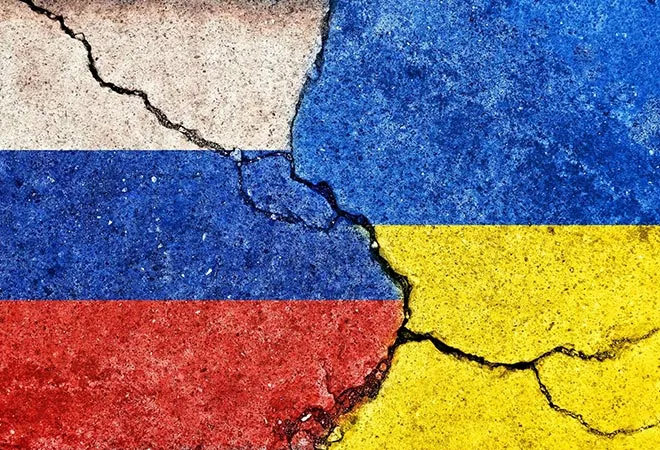-
CENTRES
Progammes & Centres
Location
Russia will wait and watch to see the impact of winter on Western public opinion, and Ukraine is counting on its battlefield gains to secure a lasting momentum. That the West is getting restless about Ukraine's position is evident from the backchannel negotiations between the US and Russian officials.

The Russia-Ukraine conflict has challenged the fundamentals of India’s Russia policy unlike any time since the end of the Cold War. It is forcing Indian policy makers to confront the limits of this partnership in ways that they were reluctant to do before. For decades, the unidimensional nature of this partnership, based largely on defence sales, had been evident but no one was willing to bell the cat. Today, as Indian forces continue to face a formidable adversary in the Himalayan borders, continued reliance on Russia that is fighting its own war that is sucking up its resources is fast emerging as India’s greatest vulnerability. Moreover, the future of Russia-China partnership is no longer as uncertain as it was some time back. A Moscow that refuses to acknowledge the centrality of the Indo-Pacific to India’s strategic reimagining will find it hard to convince many in Indian about its key role in India’s future strategic posture. On the other hand, the last few months have seen India and Russia taking their energy ties to a new high with New Delhi increasing the import of discounted crude oil from Russia notwithstanding increasing disquiet over it by several Western powers. Russia was India’s top oil supplier in October accounting for 22 per cent of India's total crude imports. This is due to the discounts that Russia has been offering after being placed under sanctions by the West. New Delhi has been reluctant to endorse the G7 proposal to cap the price of Russian oil. Jaishankar has maintained that New Delhi has little choice but to continue to buy Russian oil “when the price of oil is breaking our back.” During his recent visit too, Jaishankar reiterated that India's “fundamental obligation” is to ensure that Indian consumer has the best possible access to global markets. But India also recognizes that this is not sustainable and its window of opportunity might be closing soon. Not surprisingly, there is growing disquiet in New Delhi about the inability of the two sides to come to a political settlement as reflected in Jaishankar’s reasserting of the Modi pitch that this is not the era of war even as he lamented the “consequences of Ukraine war.” For all the hoopla surrounding reports about New Delhi’s role as a peacemaker, serious negotiations are nowhere on the cards as both sides remain invested in “winning” the war. Russia will wait and watch to see the impact of winters of western public opinion and Ukraine is counting on its battlefield gains to secure a lasting momentum. That the West is getting restless about Ukraine’s position is evident from the backchannel negotiations between the US and Russian officials. But for India too, there will be difficult choices ahead if the present stalemate continues through to the spring of next year.With reports emerging that India is preparing to play a larger role in bringing an end to the Russia-Ukraine conflict, External Affairs Minister S Jaishankar’s visit to Moscow assumed great significance.
The views expressed above belong to the author(s). ORF research and analyses now available on Telegram! Click here to access our curated content — blogs, longforms and interviews.

Professor Harsh V. Pant is Vice President – Studies and Foreign Policy at Observer Research Foundation, New Delhi. He is a Professor of International Relations ...
Read More +